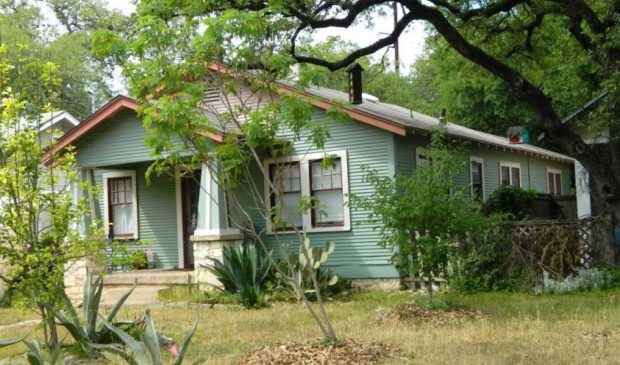Bouldin demolition raises odd questions, provides no answers at Historic Landmark Commission
Friday, June 30, 2017 by
Elizabeth Pagano There was a great deal of confusion on the dais at the Historic Landmark Commission meeting Monday night following a plea from a homeowner opposed to the proposed demolition of her own home.
“I really don’t understand how it works. I’m really not even sure who it is that wants it demolished,” said homeowner Joanne Young. “I guess I signed something, and … the reason I did was that I was told I could move the house off the property if it sold.”
Young told the commission that her family had owned the home at 912 W. James St. since the 1970s and though there was a pending sale on the property, she did not think it was going to “go through.” She said that she had agreed to a permit to remove the house on the condition that the house was moved to another location.
“The people who want to demolish it are the people who are buying it, and I’m not sure the sale will be going through,” said Young. “It’s been pending for six months.”
Since then, she explained, she has contacted several companies that explained the house could not be moved to where she wanted to move it. Though commissioners voted unanimously to deny the demolition permit, that isn’t a power they hold. After a reminder that they can prevent demolitions by initiating historic zoning, but not deny permits outright, commissioners opted to postpone the case until their July meeting. That vote was also unanimous, with commissioners Tiffany Osburn and Andrew Brown absent.
“Hopefully by then we will have more information about the status of the real estate deal,” said Commissioner Emily Reed. “And hopefully this will just go away.”
Celia Israel, who is representing the potential buyer of the home, indicated to the Austin Monitor that there were some details to work out with the current owner, but those conversations had not yet taken place.
Young also testified that the home had historic value through the associations of its residents.
Though Young can certainly prevent the demolition of the home if she retains ownership, Historic Preservation Officer Steve Sadowsky did not back up her push for individual historic landmarking.
“This is a hard sell for landmark designation,” he said. “The house obviously maintains a high degree of integrity, it maintains its identity as a 1930s bungalow, it just doesn’t have the significant history in and of itself.”
In another twist, the case raised a new issue of notification among commissioners.
The home had been identified as one that could potentially contribute to a historic district in the Bouldin Creek neighborhood in a historic survey. Commissioner Kevin Koch pulled the case from the agenda in the hopes of establishing a protocol for when such homes are up for notification. Specifically, he asked whether neighborhood associations could be informed that a potentially contributing structure was at risk for demolition.
Sadowsky explained that neighborhood associations are notified when there are demolitions. However, Koch was hoping that the notice would make it clear that the home could be a contributing structure to a local historic district – with information about how the creation of a district could be the only way to realistically prevent the home’s demolition or removal.
Sadowsky explained there was “no mechanism” in the current process to include that information in notifications, and suggested that the idea might be better explored in a meeting of the commission’s operations committee.
In this particular case, Sadowsky explained, things were slightly complicated by the fact that the survey that identified the home was not an official city survey, nor had it been submitted to the city. Though he was aware of its existence, he did not have a copy of it. That, he said, was the case for a number of historic resource surveys throughout the city.
This story has been corrected to reflect the nature of the permit in question, which would allow demolition or relocation of the house.
The Austin Monitor’s work is made possible by donations from the community. Though our reporting covers donors from time to time, we are careful to keep business and editorial efforts separate while maintaining transparency. A complete list of donors is available here, and our code of ethics is explained here.
You're a community leader
And we’re honored you look to us for serious, in-depth news. You know a strong community needs local and dedicated watchdog reporting. We’re here for you and that won’t change. Now will you take the powerful next step and support our nonprofit news organization?









